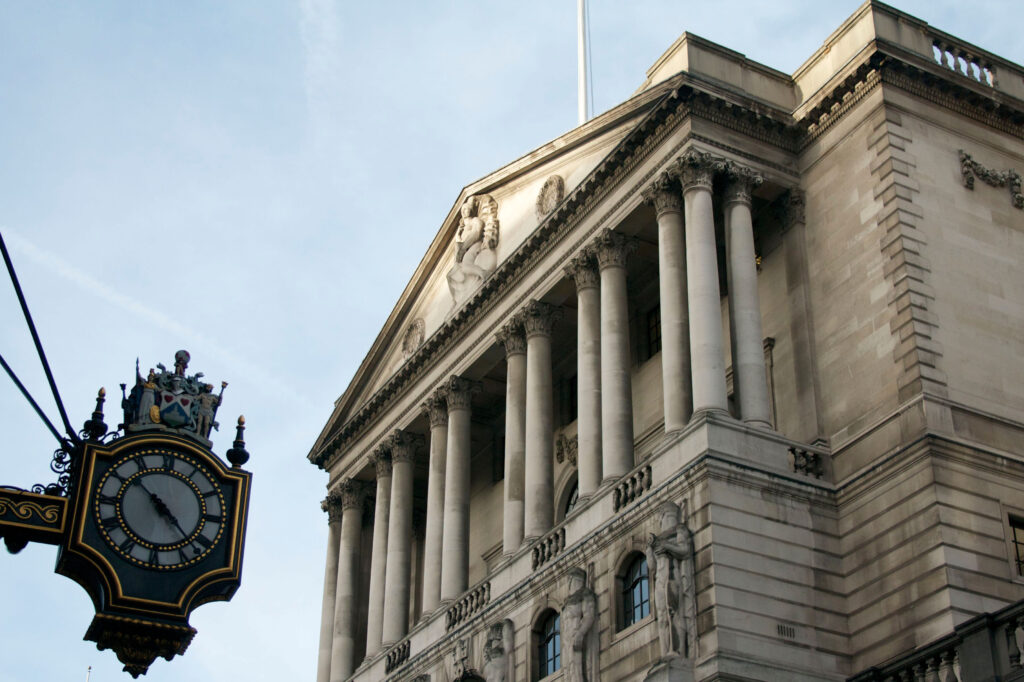Quilter’s take: Unpacking the Headlines
By Globelynx 17/05/2024Amongst its growing roster of industry experts, Globelynx can boast a number of news experts in the financial sector. With the cost-of-living crisis ongoing, a looming general election this year, plus constant news in the finance world around global investment, inflation, acquisitions and more, we are going to put a regular spotlight on some of our most prominent financial experts.
Quilter and Quilter Cheviot are two expert organisations we are proud to have as part of the Globelynx offering, their experience in investment and wealth management make them an ideal choice for news outlets looking to elevate their coverage and are seeking clarity and insight on breaking finance news stories.
We asked some of their experts to share their comments on some of the big talking points that are dominating the news agenda lately.
Here’s just a few of the stories that Quilter experts share their take on…
UK labour market statistics

Richard Carter, head of fixed interest research at Quilter Cheviot:
“The unemployment level in the UK has risen once again, according to the Office for National Statistics, reaching 4.3% in the three months to March 2024 up from 4.2% in the three months to February. Wage growth, an indicator the Bank of England has been keeping a particularly watchful eye on, is reported to have increased slightly. Annual growth in total earnings including bonuses increased slightly to 5.7%, up from 5.6% previously, while annual growth in average regular earnings remained stagnant at 6%.
“Though small, this uptick in wages will be of concern to the Bank of England, particularly when coupled with new data from the Resolution Foundation released just yesterday which revealed that real wages – measured in terms of the goods workers can buy with regular wages – rose by 2% in the year to February 2024. Though this is good news for households as cost of living pressures should now be easing somewhat, the Bank will likely fear that it risks being inflationary if businesses attempt to restore profits by raising prices.
“Labour market inactivity, another area that has been watched keenly by the Bank of late, also climbed. In the three months to March 2024, the UK economic inactivity rate for those aged 16 to 64 years reached 22.1% – this is above estimates of a year ago, and an increase on the last quarter.
“Despite questions around the accuracy of the ONS data, which the Bank of England highlighted as a challenge for its decision-making, the labour market data remains a pivotal factor in monetary policy. As the Bank contemplates its first interest rate cut, the precision of these figures is crucial. Any data inaccuracies could significantly impact the economy, necessitating a cautious approach by the Bank. Though we have seen a slight uptick in wage growth, the possibility of rate cuts later in the summer still looms, adding to the Bank’s deliberations.”
Election clean sweep for Republicans won’t spell doom for US stocks, according to new global fund manager survey
- Quilter Investors discovers views of senior personnel at 21 leading fund groups, including BlackRock and PIMCO
- Four in ten (42%) expect UK interest rates to be above 4% by the end of 2025
- Just 15% see Donald Trump returning to power and Republicans winning control of Congress as a negative for US stocks
Investor expectations for interest rates and inflation remain historically wide, while the upcoming US election is likely to be much more of a risk for European markets than for US equities.
These are the findings of the inaugural Quite Interesting Survey from Quilter Investors. This new quarterly survey of leading fund managers covers forecasts for macroeconomic data, along with more timely indicators such as the impact of upcoming elections, the role of geopolitical risks and long-term structural trends.
The survey was sent to senior personnel at 21 leading fund managers such as BlackRock, Fidelity and PIMCO.
The survey highlights a broad spectrum of possible outcomes for inflation rates. The expected level of inflation in the UK by year-end could be as low as 1.8% to more than 3.2%. Whilst there is more agreement that inflation will return closer to target across the developed world in 2025, with 58% expecting UK inflation to be below 2.2%. However, there’s still debate over the interest rate required to achieve that. Expectations for UK base rates by December 2025 range from 2.5% up to 4.5%, with more than four in ten (42%) at the higher end of that range.
Turning to US politics, the best election outcome for markets was voted to be a Biden presidency with Republican control of the Senate, with a split in power generally favoured over one-party dominance. However, just 15% of respondents saw a negative impact for US equities should Donald Trump return to power and Republicans win control of Congress. On the other side of the pond, the same outcome was expected to be bad news for European markets, with 61% anticipating a negative impact as a result.
Geopolitical risks were also identified as a source of potential future market volatility, with the relationship between the US and China cited as the most pronounced threat. One respondent commented, “geopolitical risk is increasing, at a time when markets are pricing in no risk premia. So, any further geopolitical risk, which seems to be the likely path, is not priced in.”
Finally, the survey also looked at the feasibility of a 2% inflation target across developed economies. Nearly half of respondents (47%), said the target was unreasonable or totally unreasonable, with one person saying “the world is focused on security medium to long-term. That will require capital and fiscal spend which means inflation will be higher than we’ve been used to in the post-financial crisis period.”

Lindsay James, investment strategist at Quilter Investors, said: “At a time when global growth is decelerating, we are seeing a number of threats that risk the global order that we have become familiar with. However, despite the conflicts that have erupted of late, it remains the relationship between the two economic behemoths, US and China, that concerns investment professionals.
“Clearly these geopolitical risks are weighing on fund groups too with many expressing pessimistic views on where inflation and interest rates are heading. With expectations tempered in recent weeks, we are starting to see the possibility of divergent monetary policies from the major central banks. With markets often responding strongest following the first cut, it will be interesting to see how firms are allocating as a result.
“We are excited to bring the insights of some of the largest fund groups in the world to advisers and clients, giving them a flavour of what are considered to be the most prominent issues of the day. We will be tracking these responses over time to get a proper indication of how fund managers are positioning their portfolios and what is expected from the global economy in real time.”
Bank of England holds interest rates at 5.25%
Lindsay James, investment strategist at Quilter Investors
“High interest rates are helping to bring down inflation, but more evidence is needed that this is a sustainable shift before rates can be cut. That is at least the message emanating from the Bank of England following its decision to keep interest rates at 5.25% for the sixth time this hiking cycle, but it may soon begin a process of gradual rate cuts. It has been a long and painful period for businesses and consumers, but it appears inflation is now close to being under control, and less likely to spike given energy prices are well off their highs and storage levels remain robust after a mild winter. Focus can thus turn to supporting economic growth at a time when the UK economy is struggling to escape the orbit of a growth rate that is effectively zero.

“While this feels significant, it is important not to get ahead of ourselves. Markets have been a little giddy in recent quarters about the prospect of interest rate cuts, but that has since faded. While markets have begun to price in rate cuts beginning by the end of the September meeting, the floodgates won’t simply just open. Central Banks have a tendency to be fairly conservative in the way they act and thus market expectations for just two rate cuts by year end look reasonable. As a result, any hope from the Government that these cuts will help sway the election may be misplaced as the impact will take a while to feed through properly.
“Furthermore, while the prospect of lower interest rates has so far done very little for consumers or businesses in 2024. Long term gilt yields, which form the basis of mortgage rates and long-term debt agreements, have risen around 60bps as markets have priced in higher for longer interest rates in the US, with markets sceptical that the Bank of England can diverge significantly from the script that the Federal Reserve are following without triggering a sharp drop in the value of sterling, and with it a further inflationary pulse. Slow and steady will be the order of the day when the time comes for the Bank of England to start cutting.”
Disney’s latest financial results

Ben Barringer, technology analyst at Quilter Cheviot:
“Disney’s second quarter results on the surface were fine, but the outlook is where the disappointment was lurking. While better cost discipline has got its streaming business into better shape, Disney is guiding for a decline in subscriptions in the next quarter as we hit the summer lull. It is hoping to combat this by copying the Netflix model and preventing password sharing globally. The problem Disney has is that its content is not on the same level as Netflix as yet, and is further impacted by the writers’ strike of 2023, thus we are likely to see more churn rather than conversions into new subscribers. With linear TV continuing its perpetual decline, Disney is banking on the stream service delivering consistent profits soon.

“The big disappointment for investors, however, was the future growth of the Parks business, where the vast majority of money is made. Growth is slowing as the post-Covid honeymoon period for travel comes to an end. Consumers are draining the pile of excess savings that were built up during the pandemic, and as a result Disney is suffering. What the new normal looks like remains to be seen, but a good result would be growth somewhere in the mid- to high-single digits.
“Despite the uncertainty, Disney does still remain a high-quality business. Its major problem is that through its size and legacy, it carries a lot of flaws. Netflix by comparison is a much cleaner and simpler business, and as such if investors want exposure to consumer entertainment, its proposition is far more compelling at this stage.”

Tom Gilbey, equity research analyst at Quilter Cheviot:
“Experian’s Q4 organic growth of 8% slightly exceeds market expectations. The full year 2025 and medium-term guidance are promising, indicating a robust economic recovery coupled with continuous innovation that is expected to drive strong financial performance.
“This includes impressive organic revenue growth and good margin accretion. Experian’s strategic investments, both organic and inorganic, in key verticals positions it well to capitalise on data monetisation opportunities, making Experian a relatively unique business in the UK for its quality and the type of exposure it offers to data monetisation.
“The acceleration of organic revenue growth to 8% in Q4 is particularly noteworthy, marking a significant increase compared to the previous quarters. This surge is primarily attributed to a reacceleration in North America, fuelled by a resurgence in the mortgage market. The full year margin increase to 29.6%, up by 10 basis points from last year, reflects operational efficiency, although it’s important to note the contrasting margin performances across regions, with Latin America showing strong expansion while North America and UK & Ireland experienced a decline.
“Looking ahead to 2025, Experian’s guidance suggests a healthy organic revenue growth of 6-8% and further margin improvement of 30-50 basis points. The medium-term outlook remains equally optimistic, with expectations of high-single-digit organic revenue growth, continued margin enhancement, and capital expenditures maintained at about 7% of revenue.”
To learn more about Globelynx visit globelynx.com.
To enquire about our services, get in touch here.
Globelynx is part of the PA Media Group.
To follow the latest news and updates from Globelynx, follow them on LinkedIn here.